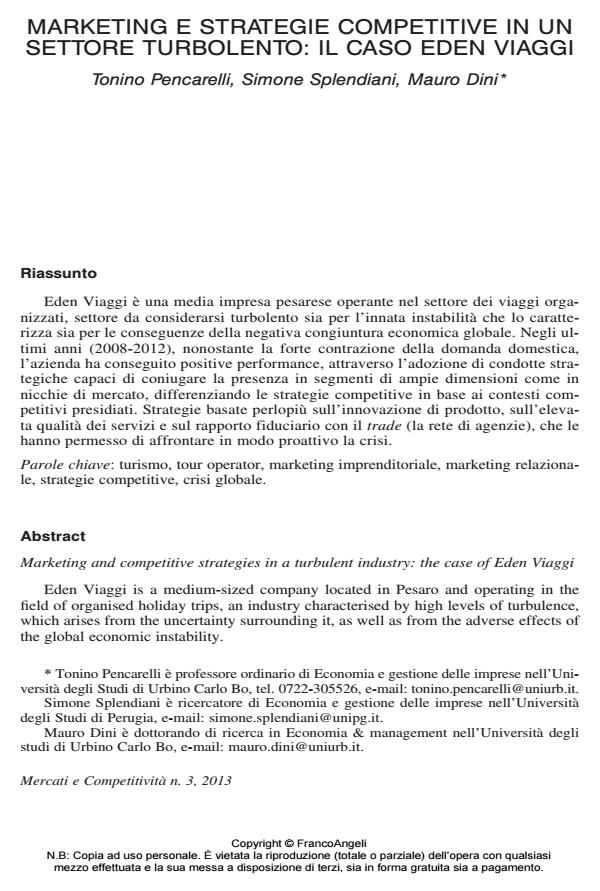Marketing and competitive strategies in a turbulent industry: the case of Eden Viaggi
Journal title MERCATI E COMPETITIVITÀ
Author/s Tonino Pencarelli, Simone Splendiani, Mauro Dini
Publishing Year 2013 Issue 2013/3
Language Italian Pages 20 P. 107-126 File size 758 KB
DOI 10.3280/MC2013-003007
DOI is like a bar code for intellectual property: to have more infomation
click here
Below, you can see the article first page
If you want to buy this article in PDF format, you can do it, following the instructions to buy download credits

FrancoAngeli is member of Publishers International Linking Association, Inc (PILA), a not-for-profit association which run the CrossRef service enabling links to and from online scholarly content.
Eden Viaggi is a medium-sized company located in Pesaro and operating in the field of organised holiday trips, an industry characterised by high levels of turbulence, which arises from the uncertainty surrounding it, as well as from the adverse effects of the global economic instability. In recent years (2008-2012), despite the sharp contraction in domestic demand and unlike its major competitors, the company has achieved positive financial performance. This result was obtained pursuing combined strategies in order to establish profitable presence both in large segments or in niche markets; strategies which varied according to the different competitive business environment; which have mostly been based on innovation, on the high quality of services and on the trust relationship with the trade (the travel agencies network) and which, as a result, allowed the company to proactively tackle the current financial crisis.
Keywords: Tourism, tour operator, entrepreneurial marketing, relationship marketing, competitive strategies, global crisis.
Tonino Pencarelli, Simone Splendiani, Mauro Dini, Marketing e strategie competitive in un settore turbolento: il caso eden viaggi in "MERCATI E COMPETITIVITÀ" 3/2013, pp 107-126, DOI: 10.3280/MC2013-003007